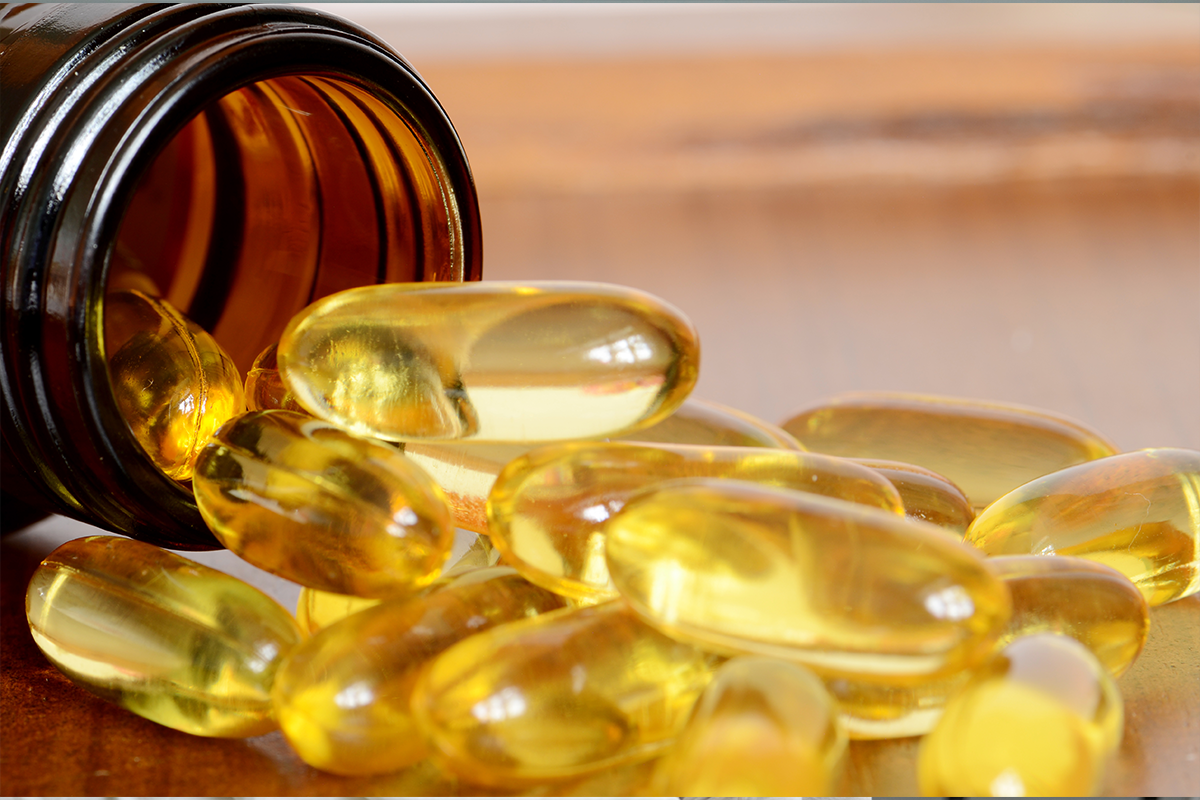Advertisement
10 Unexpected Facts About Vitamin D
These might surprise you

Vitamin D is vital for sturdy bones, clear thinking, and an ironclad immune system. Although it comes from sunshine (and a few other sources—more on that later), 76.6 percent of people globally have low vitamin D intake. These are a few other surprising facts about the sunshine vitamin and the health benefits you’ll enjoy by getting more of it.
Advertisement
Mushrooms contain vitamin D

Swapping meat for mushrooms doesn’t only result in delicious plant-based meals for less money. It could also give you more vitamin D. When mushrooms are exposed to ultraviolet (UV) light (such as sunlight), they become rich in vitamin D. The amount of vitamin D may vary based on type and UV exposure, but picking up a few mushrooms at the grocery store is an easy dietary change that leaves more room in your monthly budget.
Advertisement
Sunscreen prevents some vitamin D production

UV light stimulates vitamin D production in the body but also causes skin cancer if you absorb too much throughout your life. Sunscreen is a helpful prevention tool, but it also reduces some vitamin D production by blocking the UV light responsible for kickstarting its production. That’s one of the reasons why vitamin D supplements are a bright idea year-round.
Advertisement
Vitamin D is technically a steroid hormone

Although you probably recognize vitamin D as a vitamin, it’s technically a steroid hormone. The human body naturally produces it, though you can still get vitamin D through some whole foods (such as mushrooms!). Try eating foods like canned tuna and egg yolks to increase how much of the essential vitamin you get each day.
Advertisement
Vitamin D may prevent brain disease

Research shows vitamin D provides critical neuroprotection by clearing amyloid beta aggregates that trigger brain diseases. People with a family history of brain disease might consider this one of the most crucial vitamin D facts. Getting more of this nutrient could help you avoid conditions such as cerebrovascular disease, which reduces blood flow to the brain and causes more than 160,000 deaths annually in the US.
Advertisement
Young people often get less vitamin D

Young people may get less vitamin D than older age groups because they spend much of their time indoors. Even if they play outdoor sports, staying inside for eight-hour schooldays impacts vitamin D production. If you’re taking classes or working a full-time indoor job, you can improve your intake by stocking up on vitamin D supplements, eating fortified foods, and spending more time outdoors.
Advertisement
Vitamin D and K work together

Vitamin D and K are a powerful pair. Both vitamins support optimal bone health—vitamin D helps with calcium absorption, while vitamin K directs calcium toward bones. This synergy helps make bones stronger and more flexible. To make the most of this dynamic duo, look for a combined vitamin D3 and K2 supplement at your local health food store.
Advertisement
Sunshine stimulates more vitamin D production at certain times

Solar radiation becomes stronger as the sun rises, so people make more vitamin D between 10 am and 4 pm while it’s around its highest point. Your body will make vitamin D more effectively during those hours, which can help brighten your mood. Aim to spend more time outdoors during the day, even if all you can manage is a 15-minute lunchtime walk.
Advertisement
Vitamin D strengthens bones along with calcium

Calcium and vitamin D are another bone-healthy combo. Experts recommend that most adults get at least 1,000 mg of calcium daily to help fortify bones. Research also shows that vitamin D promotes bone health—even in individuals with conditions such as osteomalacia (also known as soft bones). Getting both nutrients in your diet could be a significant source of support for people with weak bones.
Advertisement
Vitamin D benefits the digestive system

When you picture someone helping their digestive system, you likely imagine them taking probiotics to improve their gut microbiome and digest food more easily. Getting more vitamin D might create similar results. Research shows that vitamin D can help ease gastrointestinal inflammation, and people with higher vitamin D levels tend to have lower rates of irritable bowel disease. If you deal with adverse gut symptoms regularly, this could be one of the most important vitamin D facts to consider when making health changes to your daily diet or routine.
Advertisement
There are 2 types of vitamin D

Surprise—there isn’t one singular type of vitamin D. Vitamin D3 is created from sunshine and found in foods such as fatty fish, while vitamin D2 is typically produced synthetically. When researchers compared the two types of vitamin D, they found that the body naturally absorbs vitamin D3 more easily and converts it more efficiently. While vitamin D2 provides the same benefits, you may experience more substantial improvements by increasing your vitamin D3 intake.





